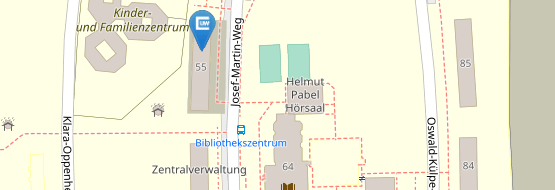New trends on the labor market: AI in the application process
Definition of Robot Recruiting:
Robot recruiting is the use of algorithms, programs and artificial intelligence in the selection process of companies. The technical systems assist HR staff in screening and selecting applications, answering questions from applicants and other recruitment tasks.
The labour market is very tense due to a shortage of skilled workers, fuelled by digitalisation, demographic change and low unemployment. New methods and ways of recruiting new employees are therefore crucial for efficient and long-term success. Artificial intelligence can be used as a tool to support HR staff in some aspects of the hiring process. New applications are also likely in the future. The applications are numerous and include:
By using chatbots, students receive quick and, in most cases, appropriate answers to their questions regarding the application process. This has a positive effect on the candidate experience/journey. In addition, no one from the HR department has to spend time on this, while the candidates automatically receive information on career options, further training opportunities or working hours through the AI. Nevertheless, little to no contact with recruiters makes it difficult to assess how well you fit into the company.
AI is able to screen incoming applications and analyse whether the candidates match the job advertisement - based on criteria previously defined by the recruiter. For example, the CV, cover letter or work samples are automatically processed and filtered according to soft skills, training, expertise, etc. This information is collected and listed for the recruiter in the applicant management system. This can save recruiters time, but this use of AI is prone to error if the wrong criteria are used or if technical errors lead to a rejection.
Artificial intelligence (AI) is used to analyse existing job advertisements, allowing suitable keywords, job portals or categories to be suggested to recruiters.
When searching for suitable candidates, a number of suitable candidates are suggested from a database based on requirement profiles. This leads to greater fairness in the selection of candidates as AI treats all candidates equally without unconscious bias. Candidates are therefore only shown relevant job adverts based on their qualifications and experience. In addition, relevant jobs are displayed without the need to search social media. This allows companies to select the right candidates.
AI can work out and analyse a candidate's skills, abilities and personality traits based on the tasks they have completed.
Initial interviews with potential employees can be taken over by AI applications, as the tool can use the applicant's use of language, choice of words and facial expressions to determine whether the person is a good fit for the position and the company in general.
Tips for CV-Parsing
- Use Word or PDF format when sending the CV
- Adapt your application to the required skills and interests → Matching
- Include as many keywords as possible from the job description relating to hard and soft skills
- Use precise language and active words
- Getting content to the point
- Give concrete examples when naming own character traits and strengths
- Use industry-specific technical terms
- Avoid spelling mistakes, abbreviations, special characters and graphic representations
- Use web-safe fonts such as: Arial, Times New Roman, Tahoma, Calibri
- Reproduce time periods without gaps in standard format: MM/YYYY with start and end date


